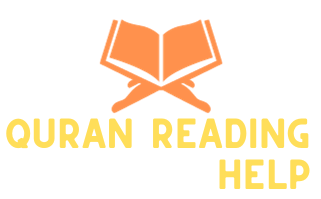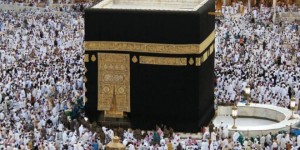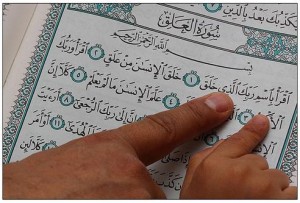If you are looking for flexible Quran classes in New York, Brooklyn, Queens, Long Island, The Bronx or NYC with skilled and qualified Quran teachers, you are at the right place. This online learning platform is ideal for those who aspire to be an expert in Quran Reading with Tajweed. You can avail our services to get connected to Quran tutors for Quran Reading, Quran Recitation, Quran Translation, Hifz Quran classes, and intensive Tajwid syllabus. The Qualifying age for students is from 4 years to 70 years.
Our Objective
Our primary goal is to create an environment for the students where they can groom themselves according to the teachings of Islam. So that they can be a responsible individual in the society with the teachings of the Quran and Sunnah. Our friendly and comfortable way of teaching motivates our students to learn the Quran with interest and love. Our Faculty is well equipped with knowledge and approaches for educating students in a modern way. We believe that with the teaching of Allah’s message & Prophet Muhammad’s PBUH sunnah we also need to strengthen our students’ character as a human for a strong society. Our online platform was built for people of all ages with different backgrounds, who are looking for a complete Quran learning package. As an online Quran learning platform, we meet all the requirements and standards with certified and experienced Quran instructors.
New York has been a hub of diversity and cultural richness, welcoming a growing Muslim population over the years. Muslims have played an integral role in the city, contributing to its dynamic landscape. The Muslim presence in New York can be traced back to the early 1900s, primarily fueled by immigration.
Muslim Population in New York City
New York’s Muslim population is estimated to be diverse, with varying cultural backgrounds and traditions. Today, the city boasts a substantial Muslim population of 9%. This city has the largest metropolitan Muslim population in the Western Hemisphere.
The presence of these institutions showcases the commitment of Muslims to their faith and the local community.
Prominent Mosques and Islamic Centers in NYC
Here are some prominent mosques and Islamic centers in New York:
Islamic Cultural Center of New York
Located in Manhattan, this iconic mosque is not only a place of worship but also a cultural and educational center, fostering a deeper understanding of Islam.
Masjid Malcolm Shabazz
Named after Malcolm X, this mosque in Harlem stands as a symbol of empowerment, social justice, and community development.
Masjid At-Taqwa
Situated in Brooklyn, this mosque is known for its emphasis on community service and spiritual growth.
The Islamic Center at NYU
Located near New York University, this Islamic center serves as a hub for Muslim students and residents in the Greenwich Village area. It provides a range of services, including prayers, lectures, and community events.
ICNA Relief – Brooklyn Community Center
Operated by the Islamic Circle of North America (ICNA) Relief, this community center in Brooklyn focuses on providing social services and assistance to those in need, regardless of their background.
Masjid Dar Al-Hijrah
Located in Astoria, Queens, this mosque serves a diverse Muslim community and is known for its active involvement in interfaith initiatives and community outreach.
Muslim Center of New York
Situated in Flushing, Queens, the Muslim Center of New York is dedicated to serving the needs of the local Muslim population, offering prayers, classes, and cultural programs.
Masjid Abu Bakr Siddique
Situated in the Bronx, this mosque is committed to fostering a strong sense of community and providing religious education to Muslims of all ages.
These mosques and Islamic centers in New York City contribute to the spiritual, social, and cultural system of the Muslim community, offering a range of services to both Muslims and other communities.
Aims of Mosques and Islamic Centers
Mosques and Islamic centers in NYC are vital religious institutes, offering worship spaces and educational opportunities to spread the teachings of Islam and the sacred Qur’an. These institutions foster unity through social events and outreach, while also facilitating interfaith dialogue to promote harmony.
They empower youth and families through tailored Koran programs, offer counseling services, and preserve cultural heritage. Moreover, they encourage civic engagement, embodying a holistic approach to faith that enriches individuals and society alike.
Quran Teacher Brooklyn
We offer our online services in Brooklyn, NY. Our students are usually American kids descendants of Muslim immigrants, mainly from Subcontinent and the Middle East. We have an extensive curriculum for Islamic studies along with advanced learning tools, flexible hours, and qualified Quran teachers.
Quran Tutor Queens
Like in Brooklyn, we are offering our online services for students from Queens, NY with efficient Staff and advanced educational tools. Our low monthly fee and expert Quran tutors have made us popular among the Pakistani, Indian, and Bangladeshi Muslim communities in the Queens area.
Quran Qari Long Island
This is the best place for online Quran classes near you in Nassau, Suffolk of the Long Island area in New York. For Quran lessons, expert Qari and Qaria are available.
Quran Ustad New York City
Students living in Manhattan, The Bronx, Staten Island, or any part of New York City can easily reach out to us with a single click. Our qualified English speaking Quarn Ustaad / Quran Ustaz and Quran Ustaza are available at your desired class time.
Online Quran Tutors/Teachers in NYC
Get the best Quran classes in NYC with our online Quran teacher/tutor. Our expert tutors provide one-to-one lessons, focusing solely on your progress. They offer a comprehensive range of Quran courses to kids, adults and ladies.
Whether you want to learn Quran reading (Nazra-e-Quran), Koran recitation with Tajweed, translation, memorization (Hifz-e-Quran), Noorani Qaida, or Islamic studies course, we’re here to meet your learning goals.
Online Quran Classes in New York
Despite the availability of mosques and centers, numerous individuals living in Manhattan, Brooklyn, Queens, The Bronx, and Staten Island face barriers to attending Quran classes.
This is where Quran Reading Help steps in!
Our platform offers accessible online Quran courses, allowing anyone, regardless of location or schedule, to learn the Qoran Majeed from experienced tutors online. Our mission is to ensure that everyone receives Al-Qur’an lessons from the comfort of their home without any obstacles.
Start Learning the Holy Quran with Us
At our online Quran school, we believe that every Muslim kid, man and woman should learn and follow the teachings of the Quran Majid to achieve success in this life and the hereafter.
That’s why our online Quran classes cater to students of all levels, whether you’re a beginner or looking to enhance your skills, join us to learn the Holy Qur’an online.
Get one-week free trial classes!
What makes us Great?
Our platform is one of the fastest-growing platforms, and our foremost goal is that our students learn the Quran not only by reading but by learning as well. Our teachers ensure that students learn the Quran properly with Tajwid. We aim to nourish our students’ learning process and development of Islamic values as we are committed to creating a community of learner which leads to the way of Prophet Muhammad (Peace Be Upon Him) and his practices. Our primary focus is to create a moral and spiritual culture with the help of the Quran and Sunnah.
How to reach out?
Please register with your email address; once you are done, you are one click away to start affordable, comfortable, and enjoyable Quran learning classes by experienced teachers.
Please sign up and join us!



